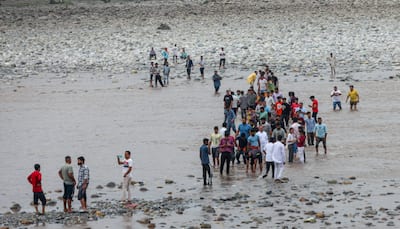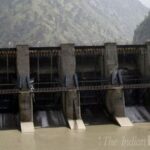The Indus Water Treaty (IWT) that once garnered pats on the back for diplomacy between India and Pakistan has been in abeyance for a month. New Delhi’s decision that terror and water cannot flow together made a critical point in relations between the two arch-rivals. The Indus Water Treaty has survived multiple conflicts between the two nations, besides thousands of terror attacks.
However, the April 22 Pahalgam terror attack proved to be the final nail in the coffin for the IWT, and there wasn’t much left for Pakistan to do in the case. India has maintained that the Indus Water Treaty will be in abeyance until Pakistan “credibly and irrevocably abjures its support for cross-border terrorism.” The Indus River system is made of multiple rivers, including the Indus, Chenab, Beas, Jhelum, Sutlej, and Ravi.
In 1951, Pakistan raised the water dispute with India in the United Nations, following which the World Bank started the mediation. After nine years of discussions and negotiations, the Indus Water Treaty was signed in 1960 by then Indian Prime Minister Jawaharlal Nehru and then Pakistani President Mohammad Ayub Khan.
Since then, India and Pakistan have been in several conflicts, including four wars- the First Kashmir War (1947), the Second War (1965), the War of Liberation of Bangladesh (1971), and the Kargil War (1999). Besides, there have been almost three decades of Pakistan-sponsored terrorism plaguing Jammu and Kashmir.
While Pakistan is trying to take the Indus Water Treaty Suspension issue to every corner of the world, it has got support from its all-weather allies, Turkey and China. There have been apprehensions that just like what India did to Pakistan with the IWT, China may do it with India, using the Brahmaputra river, which originates in Tibet and flows to India via China.
Although Pakistan wants China to punish India using the Brahmaputra river, Beijing is unlikely to do so in the current scenario, since the reasons for the conflict between India and Pakistan are different from the reasons for skirmishes between India and China.
When asked if China could interpret the Indus Water Treaty suspension as a signal to increase pressure on India through the Brahmaputra, former diplomat and defence expert Deepak Vohra said that the issue about the Brahmaputra has been talked about for a long time. “China has been threatening to build a huge dam, the largest in the world, on the Brahmaputra. They haven’t started work yet,” said Vohra, while saying that IWT and Brahamputra issues are not linked.
He added that the issues between India and China are on the border demarcation, but with Pakistan, the issues are related to fueling cross-border terrorism.
The former diplomat said that when the Indus Water Treaty was inked, India was pretty young back then, and gave away a very large share of water to Pakistan. He informed that while the Indus Water Treaty does not have a clause for amendment, the treaty can be invalidated. “According to the Geneva Convention or the Geneva Law on Treaties, often called Treaty on Treaties, if the circumstances in which a treaty was signed are materially, demographically, politically, or socially altered, then the said treaty can be invalidated,” said Vohra.
He continued, “For all practical purposes, the treaty is dead. It’s not going to be revived. We have said that if Pakistan demonstrates its commitment to give up terrorism, then India will see what to do. Pakistan is not going to give it up, and therefore, the treaty is not going to be revived.”
Vohra said that the IWT has virtually been abrogated except for nomenclature. “Keeping it in abeyance is the same as abrogating it, except for the nomenclature. And we can always tell people who curse and abuse us that it’s in abeyance, and has not been terminated,” he added.
Stay informed on all the , real-time updates, and follow all the important headlines in and on Zee News.








